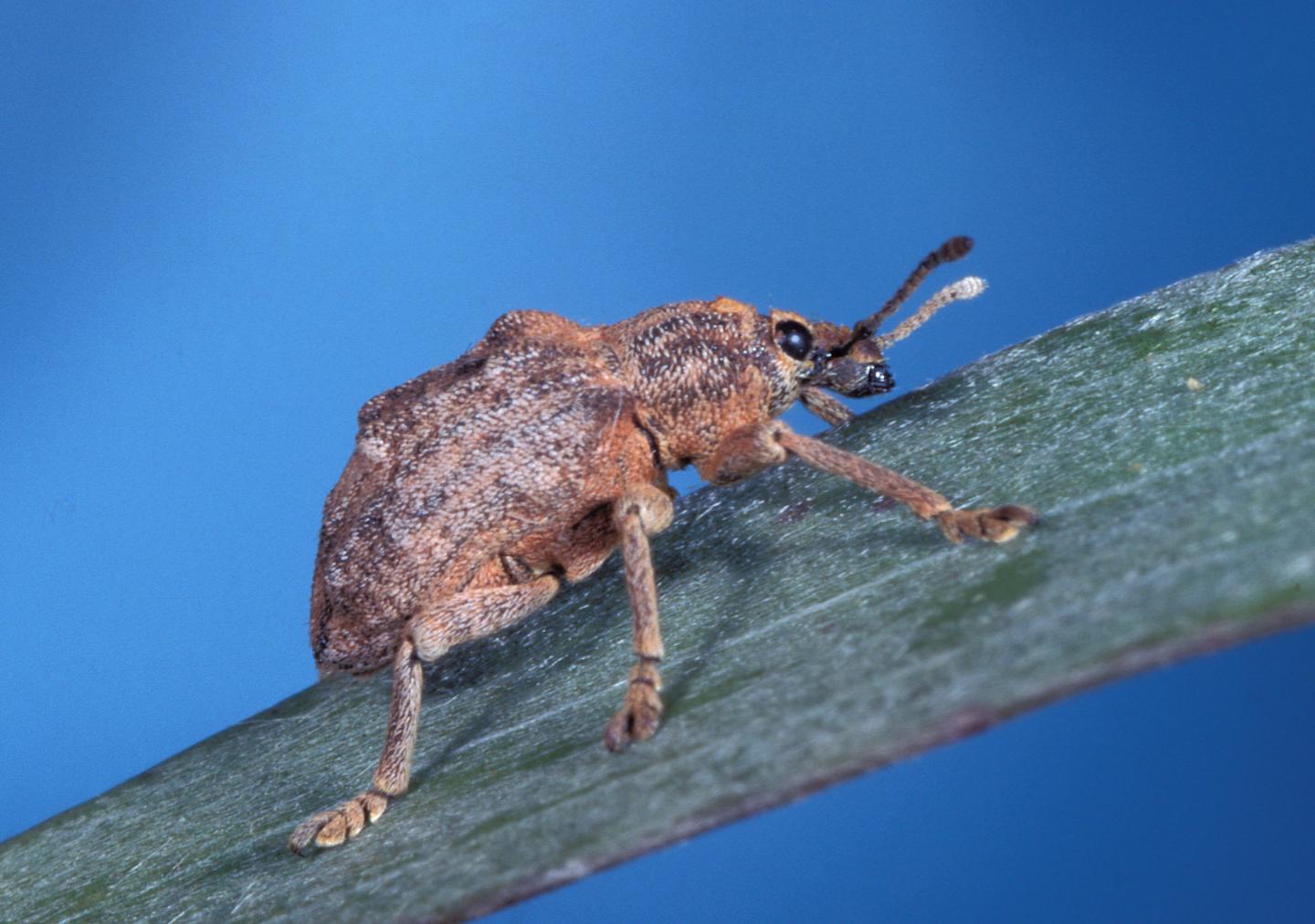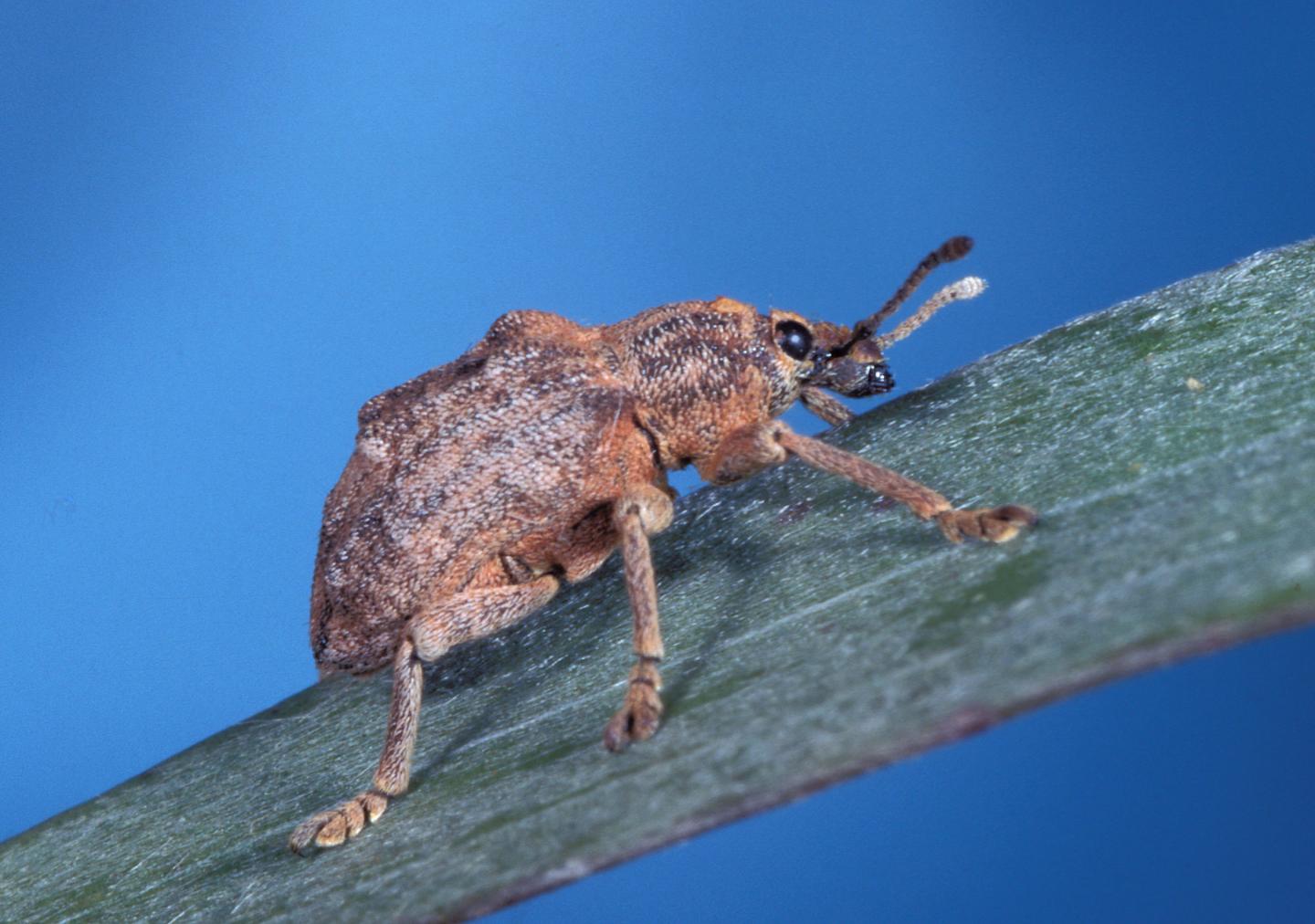
Credit: U.S. Department of Agriculture (images)
When pesticides and intentional fires fail to eradicate an invasive plant species, declaring biological war may be the best option.
Melaleuca, an invasive, woody tree native to Australia, was introduced into Florida's wetlands in the late 19th century and has caused havoc ever since by invading and displacing native vegetation and harming the biodiversity of the state's freshwater ecosystems.
In 1997, to combat the intruder, the U.S. Department of Agriculture (USDA) released melaleuca's natural enemy–a small beetle known as the weevil–into areas where the tree thrived. The weevil, also a native of Australia, feeds on melaleuca, essentially disrupting its natural growing process and killing it slowly over time.
According to University of Miami graduate student Bo Zhang, who earned her Ph.D. from the Department of Biology in the College of Arts and Sciences, over the past 20 years, the weevil has helped reduce melaleuca reproduction by 49 percent and its growth by 83 percent.
That would indicate the weevil is succeeding in its mission to reduce the spread and growth of melaleuca, but is 20 years worth of data enough to predict whether the weevil will vanquish the intruder entirely?
In their study, "Modeling the long-term effects of introduced herbivores on the spread of an invasive tree," published in the journal Landscape Ecology, Zhang said she and her collaborators used an individual-based modeling platform, known in scientific circles as JABOWA-II, to come up with a hopeful answer.
Simulating various outcomes of the weevil's impact on two types of South Florida habitats under attack by melaleuca–cypress swamps and bay swamps–the researchers found that the wetland's dominant native species may recover in about 50 years from when the weevil was first introduced in 1997, further suppressing melaleuca through competition.
In essence, Zhang said, the model proves that introducing herbivores to an invasive species can save the native species, a finding that can be applied to other studies seeking similar outcomes in the natural world.
"This individual-based model is used for a lot of ecological research but this is the first time it was used to model the long-term effects of an invasive species," said Zhang. "Basically, it can simulate each individual tree inside a plot of land and this provides more detailed information about biocontrol outcomes and, ultimately, what is the best outcome for the future."
She adds that the model also provides researchers or government officials who are monitoring the small beetle's effect on the melaleuca's growth important long-term information–what areas need more insects, which need less, or which could disappear in a number of years.
###
Zhang's collaborators on the study are Donald L. DeAngelis from the Wetlands and Aquatic Research Center at the U.S. Geological Survey; Min Rayamajhi from the USDA-ARS Aquatic Weed Research Laboratory; and Daniel Botkin from the Department of Ecology, Evolution, and Marine Biology at the University of California, Santa Barbara. The study was funded by U.S. Geological Survey Priority Ecosystem Science for the Greater Everglades.
Media Contact
Deserae Del Campo
[email protected]
305-284-2485
@univmiami
http://www.miami.edu
Original Source
http://www.as.miami.edu/news/news-archive/predicting-future-outcomes-in-the-natural-world.html
############
Story Source: Materials provided by Scienmag





